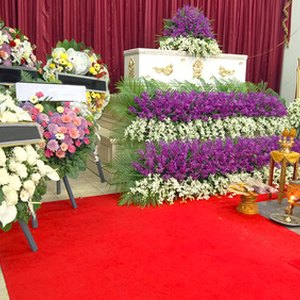
When a loved one dies unexpectedly, there may not be an existing plan to deal with the expenses of a funeral. While the National Funeral Directors Association states the average cost of a funeral is $6,500, the actual cost is often closer to $10,000 according to an MSN Money article. When no other funds are available to pay for the funeral, your IRA may be the only resource.
Hardship Distributions
Normally when you take a distribution prior to age 59 1/2, there is a 10 percent tax penalty assessed on the distributed amount. The Internal Revenue Service has a series of exceptions to this penalty known as "hardship distributions." Hardship distributions are allotted for "unforeseeable emergencies". However, a funeral expense is not considered a valid hardship distribution by the IRS.
IRA Distribution
Although it is not considered a hardship distribution, you can access IRA funds to pay for a loved one's funeral expenses. If you have a traditional IRA, you will add the distribution to your annual income taxes plus pay the 10 percent penalty if you are not yet 59 1/2. If you have a Roth IRA, you will need to distribute earnings before principal. Earnings are treated like a traditional IRA if you are not yet 59 1/2 or have not yet owned the Roth IRA for at least five years.
Other Options
Funeral expenses are considered a hardship distribution by the IRS when taken from an employer plan such as a 401k, 403b or 457b. The plan must allow for the hardship distribution in the plan adoption agreement and note that you are allowed to access your assets under the hardship distribution rule. If your plan does not allow for a funeral expense adoption agreement, inquire as to whether or not employer plan loans are authorized. Loans require no credit check and the interest is paid back to yourself over the course of five years through salary reductions.
Deceased's IRA
If the deceased owned an IRA, beneficiaries may or may not be the same as the person responsible for paying the funeral expenses. Using the IRA funds for funeral expenses does not require any type of exception. IRAs avoid probate and are therefore not accessible to creditors during the settling of the estate. However, beneficiaries do receive the inherited assets without tax penalty and are therefore able, if willing, to use these assets to pay for the funeral expenses. Most states require that a surviving spouse is the required beneficiary unless the spouse waived all rights to the IRA through written waiver.
References
Writer Bio
With more than 15 years of professional writing experience, Kimberlee finds it fun to take technical mumbo-jumbo and make it fun! Her first career was in financial services and insurance.

